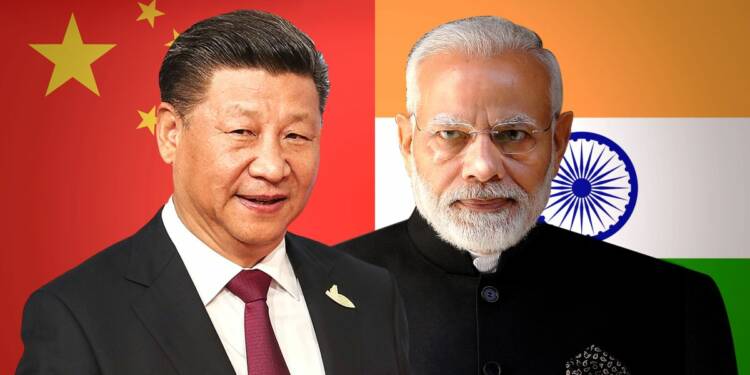As the country ring in 2021 with the news of two vaccines– Covishield and Covaxin being approved for restricted emergency use against the Wuhan virus, India is fast emerging as the saviour of the world by not only developing vaccines indigenously but also manufacturing the vaccines for the world. While China gave the deadly Wuhan pandemic, India is now preparing to serve the antidote of the virus to the world, which will further increase India’s ever-growing soft power.
Read More: The world is coming to India as no vaccine is possible without India’s go-ahead
While the Covishield vaccine which has been developed by Oxford University in collaboration with AstraZeneca, has Pune based Serum Institute of India as its manufacturing and trial partner, Bharat Biotech’s Covaxin is India’s first indigenous vaccine against the Wuhan virus, which has been developed in collaboration with the Indian Council of Medical Research (ICMR) and the National Institute of Virology.
Covishield and Covaxin are expected to end the China-made pandemic for good. While the Indian government has already announced free vaccine for its entire population, so is the marvel of India’s manufacturing capacity that both the vaccines not only stand various rigorous quality standards but are also cost-effective. Covishield is expected to cost around ₹400 whereas Covaxin would cost even less than ₹100.
Whereas China – the architect of the deadly pandemic, is desperately trying to force “friendly” countries and its citizens to take Chinese vaccines which lack quality, rigorous testing and efficacy, in a desperate bid to emerge as the nation who ended the pandemic and thereby restore its goodwill in the world to the pre-pandemic era.
Read More: China’s vaccine distribution to friendly countries is basically human testing on a much larger scale
In fact, the Chinese vaccine approved for local used had only one only 79.3 per cent efficacy with even the World Health Organisation who worked for hand in glove with Chinese President Xi Jinping to unleash the pandemic on the world, has approved only five Chinese vaccines for export compared to 47 vaccines from India.
In what has become a norm in global diplomacy, anything that China gives comes with a steep price with Southeast Asian countries increasingly getting irritated with the political conditions attached to the export of Chinese vaccines. Additionally, China’s decision to inoculate more than 1 million of its own citizens with Sinopharm doses without even completing full trials is a testament to how China cares little about the welfare of its own people, let alone the citizens of other countries.
Over the past few years, India has emerged as the global hub for vaccines with Hyderabad, Mumbai and Ahmedabad emerging as the manufacturing hubs for global pharmaceutical companies. Hyderabad, in particular, stands out with earlier this month, 60 envoys visiting the vaccine manufacturing facilities of Bharat Biotech and Biological E., which is a sign of how the city will be at the forefront of quenching the world’s thirst for coronavirus vaccines.
It is pertinent to note that India will contribute to about 60-70 per cent of global supplies of vaccines. “By the middle of next year, we will have several Covid vaccines for use globally,” said Krishna Ella, Chairman and Managing Director of Bharat Biotech.
Prime Minister Narendra Modi had earlier vowed: “to help all humanity” against the Wuhan pandemic. While India would understandably first vaccinate its population before supplying it to other nations, India has already a plan in place, when it comes to the export of vaccines. To put things in perspective, Hyderabad has the medical infrastructure to meet one-third of global vaccine demand with the Serum Institute of India already churning out more than 1.5 billion doses per annum.
The SII is expected to make 200 million doses of Covishield by the end of January with the firm also reserving 50% of whatever quantity they “manufacture to low-and middle-income countries” and has capped the per-unit price of a dose at $3. Earlier, SII’s meningitis vaccine for Africa was priced at less than 50 cents which the WHO credited for saving “hundreds of thousands of lives.”
Foreign Secretary Harsh Vardhan Shringla had earlier announced that the “First priority will be for our closest neighbours, our friends” as he assured Nepal, Bangladesh, and Myanmar of coverage under India’s vaccine umbrella.
“The lead India is taking in developing vaccines is a source of hope for all of us,” said Lotay Tshering, the Prime Minister of Bhutan.
While China has gone from unleashing the pandemic on the world, to supplying flawed testing kits and finally, questionable vaccines, Xi Jinping is fumbling to tackle India’s growing stature amongst the global community. Chinese vaccines can never match India’s vaccines in terms of quality and price.
As India prepares to manufacture vaccines for the world, the country’s soft power will increase exponentially much to the chagrin of Xi Jinping. It will also provide a further basis to the fact that India is the only antidote to anything which is made in China be it the pandemic or its aggressive expansionism at the cost of smaller nations.

























